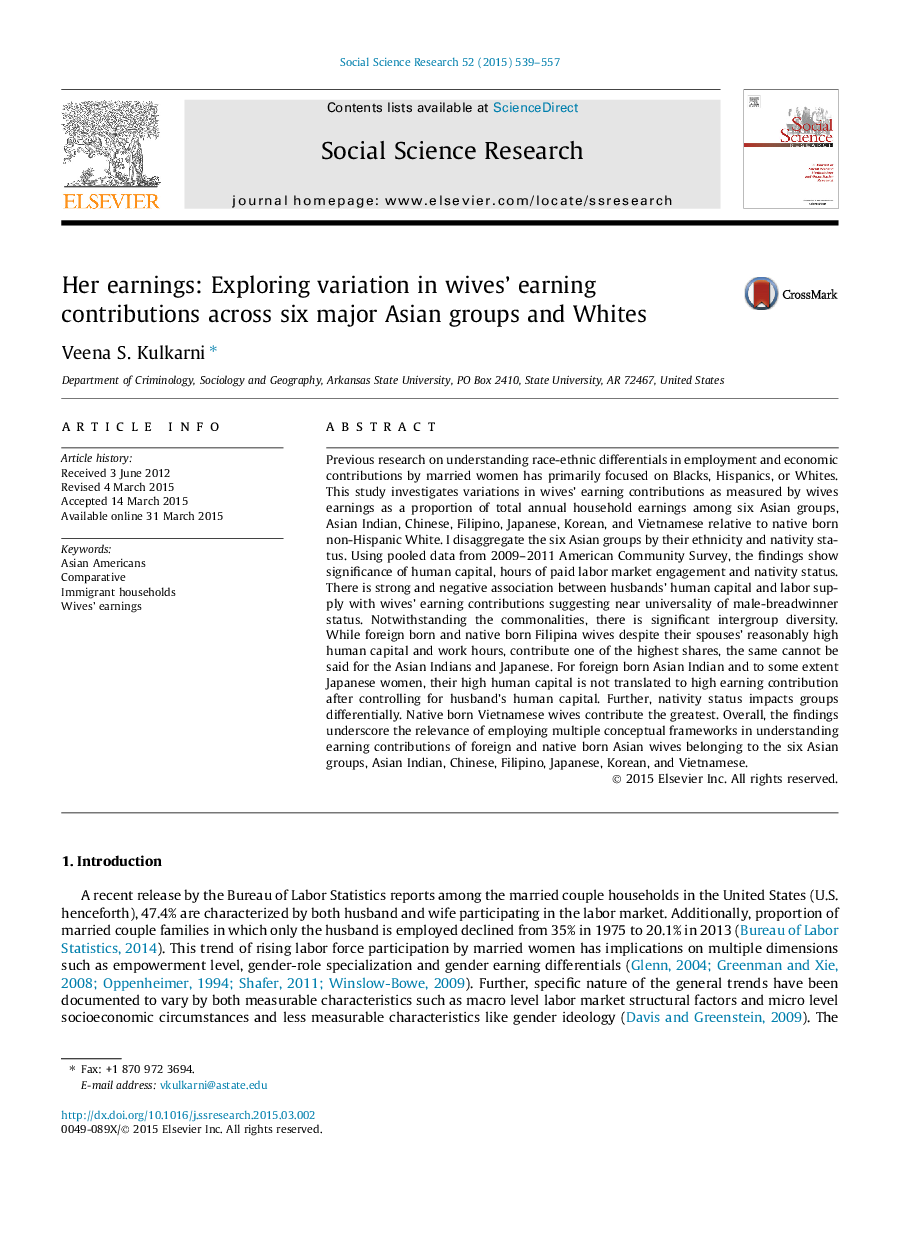| کد مقاله | کد نشریه | سال انتشار | مقاله انگلیسی | نسخه تمام متن |
|---|---|---|---|---|
| 955717 | 1476123 | 2015 | 19 صفحه PDF | دانلود رایگان |
• I analyze wives’ earning contributions in married couple households.
• Groups are Asian Indian, Chinese, Filipino, Japanese, Korean, Vietnamese and non-Hispanic White.
• Human capital, labor supply, immigration, household economic status are significant.
• Varying immigration histories and employment opportunities potentially explain intergroup variations.
• Multiple conceptual frameworks aid in understanding diversity among Asian groups.
Previous research on understanding race-ethnic differentials in employment and economic contributions by married women has primarily focused on Blacks, Hispanics, or Whites. This study investigates variations in wives’ earning contributions as measured by wives earnings as a proportion of total annual household earnings among six Asian groups, Asian Indian, Chinese, Filipino, Japanese, Korean, and Vietnamese relative to native born non-Hispanic White. I disaggregate the six Asian groups by their ethnicity and nativity status. Using pooled data from 2009–2011 American Community Survey, the findings show significance of human capital, hours of paid labor market engagement and nativity status. There is strong and negative association between husbands’ human capital and labor supply with wives’ earning contributions suggesting near universality of male-breadwinner status. Notwithstanding the commonalities, there is significant intergroup diversity. While foreign born and native born Filipina wives despite their spouses’ reasonably high human capital and work hours, contribute one of the highest shares, the same cannot be said for the Asian Indians and Japanese. For foreign born Asian Indian and to some extent Japanese women, their high human capital is not translated to high earning contribution after controlling for husband’s human capital. Further, nativity status impacts groups differentially. Native born Vietnamese wives contribute the greatest. Overall, the findings underscore the relevance of employing multiple conceptual frameworks in understanding earning contributions of foreign and native born Asian wives belonging to the six Asian groups, Asian Indian, Chinese, Filipino, Japanese, Korean, and Vietnamese.
Journal: Social Science Research - Volume 52, July 2015, Pages 539–557
